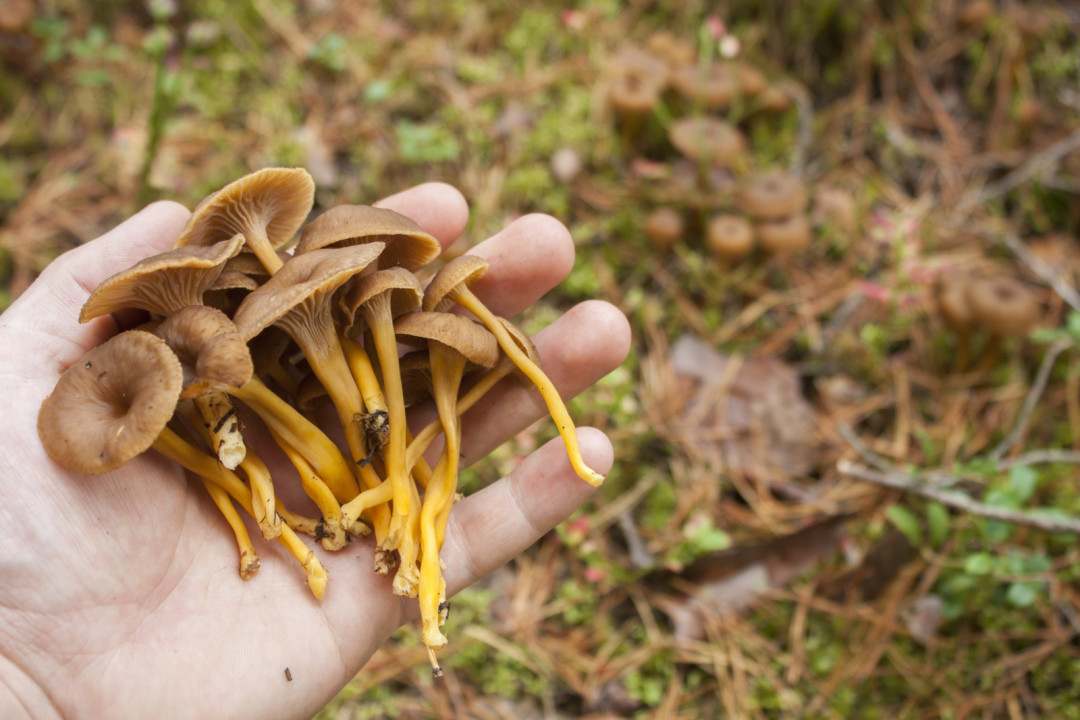A Field Guide to Local Winter Foraging

Portland, as concrete as it may seem, is fertile ground for urban foraging, teeming with wild edibles ripe for the picking—and not just in the summer months. When the temperatures drop, savvy foragers must simply look a little harder to find bounty in our wild surroundings.
Here are a few of the many ways to eat the landscape, one tree, bush, or patch of “weeds” at a time.
In addition to archery, survival, and animal tracking classes, Trackers Portland hosts seminars on Wilder Plant Basics and Medicinal Plants & Winter Remedies. Classes cover plant identification and safe, sustainable gathering methods. Find the taste of the wild and learn how to survive the winter cold and flu season with a “food as medicine” approach to well-being and health.
Portland-based forager and food blogger Rebecca Lerner of First Ways (and author of Dandelion Hunter: Foraging the Urban Wilderness) holds 3-hour "plant ID hikes." Participants learn how to identify and correctly harvest wild edibles and medicinal plants in both urban settings and local wilderness areas.
Urban Edibles, a Portland-based non-profit, is a largely online community resource that occasionally hosts workshops, events, and presentations. The organization has published field guides and maps to foraging wild edibles, medicinals and other noteworthy plant species. Check out the site’s guidelines before starting a foraging escapade.
Portland Mushroom Hunters is an informal meet-up group for anyone within Portland’s metro area. If you enjoy foraging, want to meet new people, and hope to check out new mushrooms (as well as their environments), follow along with this bunch.
Visit Falling Fruit for tips on where to find wild additions to your next meal. The project is an ongoing endeavor to rediscover the urban wilderness and shares extensive maps of fruits, nuts, vegetables, and herbs.
Wild Food Adventures with foraging expert John Kallas is another great resource that aims to reconnect folks with nature and sustainable ways of living. Although no upcoming classes are offered in Portland, check out the website for details on events, workshops, and publications. On January 24-26, two free “from dirt to plate” wild foods classes will be held in Eugene.
The Oregon Mycological Society hosts field trips, camps, and identification sessions. If you're an expert or amateur mushroom hunter, join the pack and exchange experiences while discovering cool new mushrooms and locations. The online calendar lists all upcoming events.
The Portland Fruit Tree Project, a non-profit working to reduce food waste, often hosts harvesting parties where volunteers learn how to correctly and sustainably glean fruits like pears, apples, persimmons and figs. Half of all fruit harvested at each outing is donated to local food banks, but the rest may be taken home to enjoy however you please. Check the website for upcoming events.
The School of Forest Medicine hosts events revolving around medicine-making and specific botanical profiling. The school also offers longer immersion classes throughout the year, but most are during the summer and early fall months.
Portland-based non-profit Cascadia Wild focuses on animal tracking and wilderness survival—building shelters, identifying trail patterns, and learning the language of birds—but also informs us on natural, wild edibles. Classes are offered throughout the seasons, and starting up in January Naturalist Skills Community Nights will be held free of charge.
Where do you love to forage? Share your experiences in the comments!
